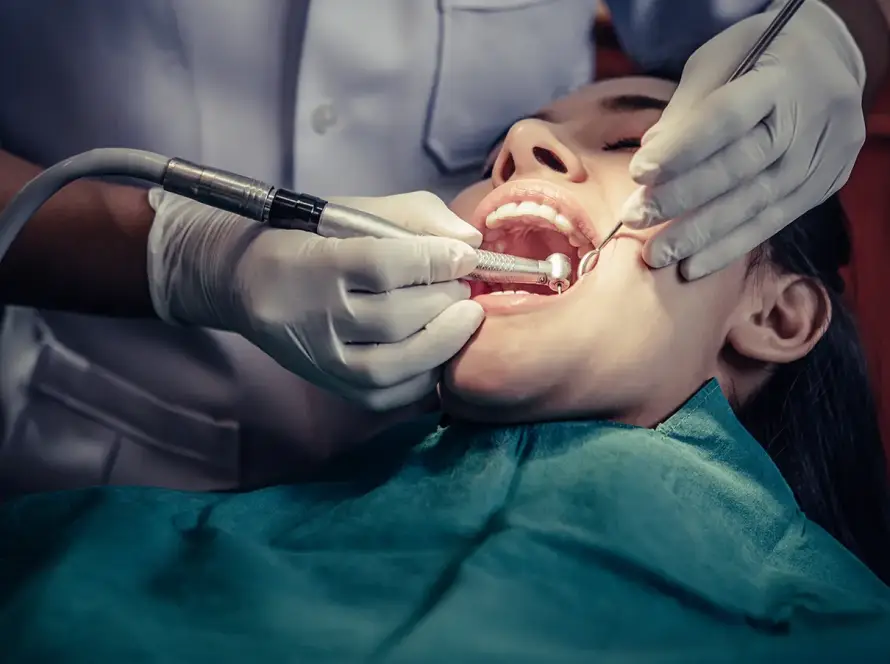Tooth extraction, a common dental procedure, involves removing a tooth from its socket in the bone. While it can seem daunting, timely extractions can prevent numerous complications. Unfortunately, many individuals delay tooth extractions due to anxiety, financial constraints, or lack of awareness. This article delves into the potential risks and complications associated with postponing this critical dental intervention. Let’s explore the impacts and repercussions of not addressing necessary extractions promptly.
Understanding Tooth Extraction
Tooth extraction becomes necessary for various dental health reasons. Common conditions calling for extractions include:
- Severe tooth decay that renders the tooth non-restorable.
- Advanced periodontal disease causing bone loss around the tooth.
- Cracked or fractured teeth where restoration isn’t possible.
- Impacted teeth, often wisdom teeth causing pain or misalignment.
When any of these issues arise, timely intervention is vital to safeguard overall dental health.
Why People Delay Extractions
Several factors contribute to individuals delaying tooth extractions:
- Dental Anxiety: Fear of pain or discomfort during the procedure.
- Cost Factors: Concerns over the expense associated with dental treatments.
- Time Constraints: Difficulty scheduling due to busy personal or professional lives.
- Lack of Symptoms: Absence of immediate pain leading to underestimation of severity.
- Misinformation: Misbelieving that temporary pain relief equates to resolving the issue.
Potential Outcomes of Delaying Extractions
Delaying tooth extractions can lead to a series of adverse effects which include:
- Infection Spread: Increased risk of infection spreading to adjacent teeth or systemic health issues.
- Abscess Formation: Painful abscesses forming, requiring more complex treatment.
- Bone Loss: Progressive bone loss around the affected tooth area making future treatments challenging.
- Damage to Surrounding Teeth: Additional strain causing damage or misalignment of adjacent teeth.
- Dental Cysts: Formation of cysts that can adversely affect jawbone health.
Through better understanding, the emphasis on timely tooth extractions becomes clear, highlighting the significance of proactive dental care.
Understanding Tooth Extractions
Tooth extractions involve the removal of a tooth from its socket in the bone. This procedure is usually performed by a dentist or an oral surgeon and can be necessary for various reasons. Common causes for tooth extractions include severe decay, gum disease, or trauma. Additionally, overcrowded teeth and impacted wisdom teeth often require extraction to maintain oral health.
There are two main types of tooth extractions: simple and surgical.
- Simple Extractions: These are performed on teeth that are visible in the mouth. They are normally conducted under local anesthesia using instruments like elevators and forceps to loosen and remove the tooth.
- Surgical Extractions: These involve teeth that are not easily accessible, such as partially erupted or broken teeth. These procedures are more complex and may involve incisions and stitches. Local anesthesia, and sometimes general anesthesia, is used based on the case’s complexity.
Aftercare following tooth extraction is crucial to ensure proper healing and prevent complications. Patients are commonly advised to follow these guidelines:
- Rest and Recovery: Limiting physical activity for the first 24 hours to promote clot formation and reduce bleeding.
- Pain Management: Over-the-counter pain relievers and prescribed medications can help manage discomfort following the procedure.
- Oral Hygiene: Gentle rinsing with salt water, avoiding brushing the extraction site, and maintaining general oral hygiene can prevent infections.
- Diet Restrictions: Soft, cold foods are recommended initially. Avoid hot liquids, alcohol, and hard foods that could dislodge the clot.
To avoid complications such as infection, dry socket, or prolonged bleeding, patients should adhere strictly to post-extraction care instructions. Regular follow-up visits with the dentist can ensure the site heals correctly and assess the need for further intervention, such as implants or bridges to replace the extracted tooth.
Common Reasons for Tooth Extractions
Tooth extractions may become necessary for various clinical reasons. Below are some of the most common causes that might lead a dental professional to recommend this procedure:
Severe Tooth Decay
When a tooth is extensively decayed, it becomes irreparable. Such decay can penetrate deep into the tooth, affecting the pulp and sometimes leading to an infection. If a root canal or other restorative procedures are unfeasible, extraction remains the only option.
Gum Disease
Advanced periodontal disease, also known as gum disease, can severely damage the tissues and bones surrounding the teeth. If the support structures are compromised, the affected tooth may become loose. In such cases, extraction is often recommended to preserve overall oral health.
Overcrowding
Orthodontic treatments sometimes require the removal of a tooth or teeth to make space for proper alignment. Overcrowding can prevent teeth from aligning correctly and may necessitate extractions to create the needed space.
Impacted Teeth
Teeth that fail to erupt properly, such as wisdom teeth, are considered impacted. These can cause pain, infection, and other dental complications. Extracting impacted teeth can prevent these associated problems.
Trauma
Teeth that are severely fractured or damaged due to injury may be unsalvageable. In cases where repair is not feasible through crowns or other restorative measures, extraction may be necessary to avoid persistent pain and potential complications.
Infection
In cases where an infection cannot be treated through antibiotics or root canal therapy, tooth extraction may be required. This helps to eliminate the source of infection and prevent its spread to other teeth or deeper into the jawbone.
Preparation for Dental Prosthetics
Before installing dental appliances like dentures, partials, or implants, some teeth may need to be removed. This ensures a better fit and improved function for the dental prosthetics, enhancing the patient’s overall oral health.
Understanding these common reasons for tooth extractions helps in recognizing the importance of timely dental intervention. It ensures that the patient’s oral health does not deteriorate, thereby preventing further complications.
Immediate Consequences of Delaying Tooth Extractions
Delaying tooth extractions can result in several immediate and adverse outcomes for dental health and general well-being. Some of the foremost consequences are as follows:
- Increased Pain and Discomfort:
- The affected tooth may become increasingly painful, causing constant discomfort.
- Swelling and soreness can spread to surrounding tissues, exacerbating the pain.
- Infection and Abscess Formation:
- An untreated tooth might harbor bacteria, leading to serious infections.
- The risk of developing a dental abscess becomes higher, which can result in pus accumulation and severe swelling.
- Malocclusion and Misalignment:
- The remaining teeth may shift into the space, causing alignment issues and occlusion problems.
- This misalignment can affect chewing and speaking functions.
- Damage to Adjacent Teeth:
- The decayed or impacted tooth can exert pressure on neighboring teeth.
- This pressure may cause additional damage, like fractures or accelerated decay in surrounding teeth.
- Gum Disease:
- The presence of a compromised tooth contributes to the buildup of plaque and tartar.
- This accumulation can lead to gingivitis and periodontitis, further jeopardizing dental health.
- Bone Loss:
- The delayed extraction allows continued deterioration at the site.
- Prolonged presence of a damaged tooth can lead to resorption or loss of the jawbone structure.
- Compromised Immune System:
- A persistent infection can place stress on the immune system, reducing its effectiveness.
- This may lead to higher vulnerability to other infections and systemic complications.
- Bad Breath and Unpleasant Taste:
- Accumulation of bacteria in a decayed tooth can cause bad breath.
- Continuous infection may produce a foul taste that is difficult to eliminate.
Each of these immediate consequences poses significant risks and can further complicate dental treatments. Early intervention is crucial to prevent these immediate negative outcomes of delaying tooth extractions.
Long-term Health Risks of Delaying Extractions
Delaying tooth extractions can lead to severe and chronic health issues. These include:
Oral Infections
- Bacterial Growth: An impacted or damaged tooth that is not extracted can harbor bacteria, leading to infections.
- Abscess Formation: Infections can result in painful abscesses that may spread to surrounding tissues.
Bone Loss
- Jawbone Deterioration: Chronic infection and abscesses can erode the jawbone, leading to significant bone loss.
- Support Structure Compromise: Loss of bone can weaken the support structure for adjacent teeth, causing further dental issues.
Misalignment and Crowding
- Adjacent Teeth Shifting: A delayed extraction can cause neighboring teeth to shift, resulting in misalignment.
- Orthodontic Complications: Misalignment can complicate future orthodontic treatments and increase correction times.
Gum Disease
- Periodontal Issues: Neglected teeth contribute to plaque buildup, leading to gum disease.
- Increased Risk of Gingivitis and Periodontitis: Prolonged gum disease can progress to more serious conditions like periodontitis.
Systemic Health Problems
- Cardiovascular Disease: Chronic oral infections have been linked to heart disease.
- Respiratory Issues: Bacteria from oral infections can be aspirated into the lungs, causing respiratory problems.
- Diabetes Complications: Infections and inflammation from delaying extractions can make it harder to control blood sugar levels.
Increased Pain and Discomfort
- Chronic Pain: Remaining with a problematic tooth often leads to chronic pain and discomfort.
- Overuse of Pain Medication: Prolonged pain can result in the excessive use of pain medications, leading to dependency issues.
Higher Treatment Costs
- Escalated Expenses: Delaying tooth extraction can lead to more complicated and costlier treatments in the future.
- Insurance Challenges: Complications arising from delayed treatments may not be fully covered by insurance providers.
Impact on Quality of Life
- Eating Difficulties: Pain and infection can make eating difficult, impacting nutrition.
- Speech Problems: Misaligned teeth can lead to speech impediments.
- Psychological Impact: Persistent pain and aesthetic concerns can negatively affect mental health and self-esteem.
By recognizing and addressing the long-term health risks associated with delaying tooth extractions, individuals can make informed decisions about their oral health and overall well-being.
Impact on Oral Hygiene
Delaying tooth extractions can have several adverse effects on oral hygiene. These effects include increased oral bacterial load, gum disease progression, the development of cavities in adjacent teeth, and difficulties in maintaining general dental cleanliness.
- Increased Oral Bacterial Load
- When a problematic tooth is not promptly extracted, it can become a breeding ground for bacteria.
- Pockets of infection around the impacted or decayed tooth can foster harmful microorganisms, leading to an overall increase in oral bacterial load.
- Higher bacterial levels may infect other areas of the mouth, developing into broader oral health issues.
- Gum Disease Progression
- Untreated problematic teeth can cause or exacerbate gum disease, such as gingivitis and periodontitis.
- Inflammation and infection from the problem tooth can spread to the gums and other supporting structures of adjacent teeth.
- Progressing gum disease can lead to further tooth loss and deteriorating structures of the jawbone.
- Development of Cavities in Adjacent Teeth
- Delayed tooth extraction can increase the risk of cavities in neighboring teeth.
- The misalignment caused by the problematic tooth can create spaces that are difficult to clean, capturing food debris and bacteria.
- The presence of infection and continuous strain on adjacent teeth can erode enamel and promote decay.
- Difficulties in Maintaining General Dental Cleanliness
- Pain and discomfort associated with a non-extracted tooth can hinder effective brushing and flossing.
- Individuals may avoid specific areas in their mouths, leading to uneven cleaning and further accumulation of plaque and tartar.
- Reduced oral hygiene practices increase the risk of broader oral issues, like halitosis and staining.
In summary, postponing necessary tooth extractions substantially impacts overall oral hygiene. Recognizing and addressing these effects promptly is crucial for maintaining oral health.
Potential for Severe Infections
Delaying tooth extractions can lead to severe infections, which pose serious risks to overall health. Infections can occur in the affected tooth and surrounding tissues, spreading if left untreated. Several factors contribute to the development of these infections:
- Bacterial Growth: The mouth harbors various bacteria that can invade an already compromised tooth, leading to an abscess. An abscess is a pocket of pus that forms as the body’s immune response to the infection.
- Gum Disease: Prolonged presence of an infected tooth can exacerbate gum disease, causing gingivitis and potentially progressing to periodontitis. This condition inflames and weakens gum tissues, further destabilizing the tooth and adjacent ones.
- Bone Loss: Untreated infections can erode the jawbone. This process, known as osteomyelitis, weakens the bone structure, complicating later dental procedures and leading to potential tooth loss.
- Sinus Infections: Teeth located close to the sinus cavity, particularly upper molars, can become entry points for bacteria into the sinuses. This can result in chronic sinus infections, causing symptoms such as facial pain, headaches, and nasal congestion.
- Spread to Other Body Parts: Infections from a neglected tooth can enter the bloodstream, leading to a condition known as bacteremia. This can cause systemic infections, affecting vital organs like the heart and kidneys, resulting in life-threatening conditions such as endocarditis or sepsis.
- Impact on Immune System: Chronic dental infections strain the immune system, reducing the body’s ability to fight off other infections. This is especially concerning for individuals with preexisting health conditions, such as diabetes or autoimmune diseases.
To summarize this issue, while a decayed or damaged tooth may seem localized, the risks of delaying its extraction extend far beyond the mouth. Ignoring the problem can lead to severe, systemic health complications with long-lasting impacts.
Effects on Adjacent Teeth
Delaying tooth extractions can impact the surrounding teeth negatively. The adjacent teeth can experience several adverse effects, which can complicate oral health further.
- Shifting of Teeth
- When a tooth is removed, and extraction is delayed, the surrounding teeth can start to shift into the empty space. This movement can result in improper alignment and crooked teeth.
- Over time, this misalignment can affect the bite, leading to additional dental problems and the potential need for orthodontic treatment.
- Increased Plaque Buildup
- Teeth that are crowded due to shifting are harder to clean effectively, creating pockets where plaque and bacteria can accumulate.
- This increased buildup can lead to tooth decay, gum disease, and other periodontal issues.
- Higher Risk of Tooth Decay
- Movement of teeth into the extraction site can cause gaps or spaces that act as traps for food and bacteria.
- These traps contribute to a higher incidence of cavities in the adjacent teeth, making them more susceptible to decay.
- Enhanced Wear and Tear
- Uneven bite and misalignment caused by delayed tooth extraction can result in abnormal wear and tear on the adjacent teeth.
- This can lead to the weakening of tooth enamel and other structural issues over time.
- Bone Loss
- The bone that used to support the extracted tooth can start to deteriorate when the site is left unfilled.
- This bone loss can affect the stability and health of adjacent teeth, possibly leading to further extractions.
- Gum Recession
- Teeth that have shifted can cause undue pressure on the gums, leading to gum recession around the neighboring teeth.
- Receding gums can expose the roots of adjacent teeth, making them more vulnerable to decay and sensitivity.
- Potential for Over-eruption
- An opposing tooth may begin to over-erupt into the space left by a delayed extraction.
- This excess eruption can cause imbalances in the bite and additional complications, such as jaw pain or temporomandibular joint (TMJ) disorder.
In summary, the numerous risks to adjacent teeth due to delaying a necessary tooth extraction underline the importance of timely dental procedures. Ignoring the need for extraction can precipitate a cascade of dental health issues, emphasizing the critical nature of addressing such concerns without delay.
Influence on Overall Health
Delaying tooth extractions can have a significant impact on overall health. Ignoring the need for a tooth extraction exacerbates existing oral health issues and introduces new health challenges.
- Infection Spread:
- Dental infections can extend beyond the mouth, spreading to other areas such as the jaw, neck, and even the bloodstream, leading to conditions like bacteremia or sepsis.
- Unresolved dental abscesses may propagate to vital organs, including the heart, potentially causing endocarditis, a dangerous heart valve infection.
- Systemic Inflammation:
- Chronic periodontal infection keeps the immune system in a constant state of alert, escalating systemic inflammation.
- Elevated levels of inflammation markers correlate with increased risks for chronic diseases like diabetes and rheumatoid arthritis.
- Cardiovascular Health:
- Oral bacteria in the bloodstream can, over time, contribute to plaque buildup in arteries, heightening the risk of coronary artery disease.
- Periodontal disease, often associated with non-extracted infected teeth, shares risk factors with cardiovascular diseases.
- Respiratory Issues:
- Infections or bacteria from unextracted teeth might be inhaled into the lungs, leading to respiratory conditions such as pneumonia.
- This respiratory threat is notably higher for individuals with compromised immune systems and the elderly.
- Compromised Immune System:
- Persistent oral infections can weaken the immune system, making the body more susceptible to other infections.
- Immunocompromised individuals, such as those with HIV/AIDS or on immunosuppressive medications, are particularly at risk.
- Diabetes Complications:
- Poor oral health and infections complicate diabetes management, as higher blood sugar levels foster an ideal environment for bacterial growth.
- Conversely, severe gum disease can lead to elevated blood sugar, complicating diabetes control.
- Nutritional Deficiencies:
- Pain and discomfort from an untreated dental issue affect chewing, limiting dietary intake and leading to potential nutritional deficiencies.
- Over time, inadequate nutrition can weaken overall bodily functions, exacerbating health issues.
- Sleep Disruptions:
- Pain from unresolved dental problems can impede quality sleep, which is vital for overall health and recovery.
- Chronic sleep deprivation is linked to a host of health issues, including hormonal imbalance, cognitive impairments, and a weakened immune system.
- Mental Health Effects:
- Persistent oral pain and cosmetic concerns can lead to stress, anxiety, and depression.
- The inability to eat properly or the discomfort from infection can significantly affect daily life and mental well-being.
Psychological and Social Implications
When individuals face delays in tooth extractions, the consequences extend beyond physical health, touching on psychological and social dimensions. The ramifications can be profound and multifaceted, affecting various aspects of a person’s life.
Psychological Impact
A delayed tooth extraction can lead to chronic dental pain, which may severely impact mental well-being. Persistent discomfort can result in:
- Increased Anxiety: The continuous pain and uncertainty about the condition can heighten anxiety levels.
- Depression: Ongoing dental issues can contribute to feelings of helplessness and sadness.
- Decreased Self-Esteem: Missing or severely damaged teeth can make individuals self-conscious about their appearance, affecting their confidence.
Social Consequences
The social implications of untreated dental problems are substantial. They can affect how individuals interact with their communities and loved ones.
- Social Withdrawal: People may avoid social situations due to embarrassment over their dental appearance or bad breath resulting from infections.
- Workplace Challenges: Poor dental health can lead to missed workdays and decreased productivity. In more severe cases, it could potentially threaten job security.
- Interpersonal Relationships: Personal relationships might suffer due to the reluctance to engage in social activities or intimate interactions.
Economic Stress
Addressing dental complications when they have exacerbated due to delay can be costlier. The financial strain can:
- Increase Stress: High dental care costs can add to financial worries, compounding mental health issues.
- Limit Access to Care: Economic difficulties might further delay essential dental treatments, creating a vicious cycle of untreated symptoms.
Behavioral Changes
Changes in behavior can result from ongoing dental issues:
- Poor Diet Choices: Pain or discomfort while eating can lead to poor nutritional choices, impacting overall health.
- Reduced Oral Hygiene: Fear of aggravating pain might cause neglect in daily oral hygiene practices, worsening dental conditions.
Altogether, the psychological and social implications of delaying tooth extractions are extensive and complex, necessitating timely intervention to mitigate these adverse effects.
Financial Costs of Delayed Extractions
Delayed tooth extractions can result in significant financial burdens. Initially, a minor dental issue such as a simple decay or minor infection may require a straightforward extraction. If addressed promptly, the costs associated with basic dental procedures remain manageable. However, procrastinating this can escalate the severity of dental complications, leading to augmented expenses.
Escalating Costs Due to Advanced Procedures
- Complex Extractions:
- If the tooth’s condition worsens, the once simple extraction can become a complex surgical procedure.
- Complex surgeries often require the expertise of a specialized oral surgeon, significantly increasing costs.
- Infection Management:
- Delayed treatment can lead to serious infections, necessitating extensive treatment plans such as root canals or endodontic surgery.
- Persistent or severe infections may require hospitalization, compounding overall expenses.
Ancillary Treatments and Interventions
- Restorative Treatments:
- Severe tooth decay or damage may necessitate additional restorative procedures, such as crowns, bridges, or dental implants.
- These procedures involve multiple visits and extensive work, further increasing dental bills.
- Orthodontic Interventions:
- Impacted or overcrowded teeth may require corrective orthodontic treatments, like braces or aligners.
- These interventions are prolonged and can be financially draining.
Indirect Financial Implications
- Lost Wages:
- Multiple dental visits and recovery periods may necessitate time off work, resulting in lost income.
- Chronic dental pain can impair productivity and efficiency, indirectly affecting earnings.
- Healthcare Costs:
- Allowing oral health issues to persist can lead to systemic health problems, such as cardiovascular issues or diabetes-related complications.
- Managing these related health issues could lead to significant medical expenses.
Insurance Considerations
- Insurance Limits:
- Dental insurance policies often have annual limits; delaying extractions might mean exceeding those limits with accumulated costs.
- Additionally, not all insurance plans cover advanced or complex procedures, leading to out-of-pocket expenses.
- Flexibility and Coverage:
- Proactive dental care can ensure better utilization of insurance benefits.
- Delays might result in situations where more extensive and less covered treatments are necessary.
Addressing dental issues promptly can mitigate these financial consequences, preserving both oral health and financial stability.
Preventative Measures
Taking proactive steps can significantly minimize the risks associated with delayed tooth extractions.
Routine Dental Checkups
Regular dental checkups facilitate early detection of potential issues.
- Scheduled exams allow dentists to monitor tooth health closely.
- Professional cleanings remove plaque and tartar, reducing the risk of decay.
- Dentists can identify and address dental problems promptly.
Good Oral Hygiene
Maintaining excellent oral hygiene practices is essential.
- Brush teeth at least twice daily with fluoride toothpaste.
- Floss daily to remove debris between teeth.
- Use an antiseptic mouthwash to reduce oral bacteria.
Protective Gear for Athletes
Individuals involved in contact sports should use protective mouthguards.
- Custom-fitted mouthguards offer optimal protection.
- Over-the-counter mouthguards are a more affordable alternative.
Healthy Diet
A balanced diet that limits sugary and acidic foods can help maintain oral health.
- Consume plenty of fruits and vegetables.
- Avoid frequent snacking on sugary substances.
- Drink water regularly to aid in washing away food particles and bacteria.
Avoid Tobacco Use
Tobacco use significantly increases the risk of oral issues.
- Refrain from smoking or using smokeless tobacco.
- Seek professional guidance for cessation if necessary.
Addressing Dental Symptoms Promptly
Promptly addressing dental symptoms can prevent complications.
- Seek dental care immediately for tooth pain or sensitivity.
- Do not ignore signs of gum inflammation or bleeding.
Fluoride Treatments
Fluoride treatments can help strengthen teeth, making them more resistant to decay.
- Ask the dentist about professional fluoride treatments.
- Use fluoride mouth rinses as recommended.
Sealants
Dental sealants provide an additional layer of protection.
- Sealants are particularly beneficial for molars, which are prone to decay.
- Schedule sealant applications during routine dental visits.
Manage Stress
Stress management can indirectly benefit oral health.
- Practice relaxation techniques such as meditation or yoga.
- Avoid grinding or clenching teeth during stressful times.
By implementing these preventative measures, individuals can ensure better oral health and avoid the complications associated with delayed tooth extractions.
When to See a Dentist
Seeing a dentist promptly can prevent complications from delayed tooth extractions. Patients should seek dental advice in the following situations:
Persistent Pain
- Continuously experiencing severe pain in the affected tooth
- Pain extending to the jaw, ear, or head
- Pain exacerbated by chewing or pressure
Infection Signs
- Swelling in the gum or face around the problematic tooth
- Presence of pus or an abscess
- Persistent bad breath despite good oral hygiene
- Fever indicating a potential spread of infection
Mobility Issues
- Tooth becoming loose or shifting positions
- Teeth movement affecting bite and alignment
Difficulty Eating
- Struggling to chew or swallow due to tooth pain
- Avoiding certain foods because of discomfort
Visual Deformities
- Noticeable changes in the gum line or tooth appearance
- Discoloration signaling necrotic or severely decayed tooth
Impact on Overall Health
- Fatigue or general malaise without a clear cause
- Sudden and unexplained weight loss
Orthodontic Concerns
- Impacted teeth causing misalignment of other teeth
- Crowding affecting implant placements or orthodontic work
Regular Dental Check-Ups
- Following the dentist’s recommended schedule for routine exams
- Addressing early signs of decay or gum disease
Other Oral Health Changes
- Unusual taste in the mouth, often metallic or bitter
- Difficulty opening the mouth completely
Post-Procedure Issues
- Pain or complications persisting after previous dental work
- Extractions needed for procedures such as orthodontics or dentures
Making an appointment with a dentist is crucial when these symptoms are present. A qualified dental professional can provide assessment, diagnosis, and appropriate treatment, mitigating the risks associated with delayed tooth extractions. Ignoring these signs can lead to more severe health complications, making timely dental care essential.
Conclusion: The Importance of Timely Extractions
Timely extractions play a pivotal role in maintaining overall dental health. When teeth requiring extraction are not promptly removed, numerous complications can arise, leading to a plethora of issues affecting both the mouth and general well-being.
A primary concern with delayed extractions is the risk of infection. An untreated damaged or decayed tooth can become a hotbed for bacteria, potentially spreading throughout the mouth and even into the bloodstream. This situation can escalate into more severe health problems, such as cardiovascular issues or sepsis.
Key Complications From Delayed Extractions:
- Infections and Abscesses:
- The accumulation of bacteria around a problematic tooth can form abscesses. These are pus-filled swellings that cause significant pain and may require more extensive treatments.
- Infections can also spread to adjacent tissues, leading to cellulitis, a serious skin infection, or osteomyelitis, an infection in the bone.
- Shifting Teeth and Misalignment:
- Extracting a tooth in a timely manner prevents neighboring teeth from shifting into the gap left behind.
- Misalignment from shifted teeth can cause bite issues, making chewing difficult and leading to jaw pain or temporomandibular joint (TMJ) disorders.
- Gum Disease and Bone Loss:
- Infections and inflammation from an unextracted tooth can extend into the gums, increasing the risk of periodontal disease.
- Bone loss around the affected area may occur, compromising the structural integrity required for future dental procedures like implants.
- Costly and Complicated Treatments:
- Delayed extractions may necessitate more advanced procedures, such as root canals, bone grafts, or extensive periodontal treatment.
- The financial burden and the complexity of these treatments often surpass those of a simple tooth extraction.
- Systemic Health Risks:
- Chronic oral infections and inflammation can have systemic repercussions, including heart disease, diabetes complications, and adverse pregnancy outcomes.
- Timely extractions eliminate a major source of bacterial intrusion, safeguarding overall health.
Conclusion Insights:
Prompt dental extractions can prevent a cascade of negative health impacts, both oral and systemic. Patients are encouraged to heed professional advice and undergo necessary extractions without undue delay. Each extracted tooth can be a pivotal step toward prolonged health and well-being.














